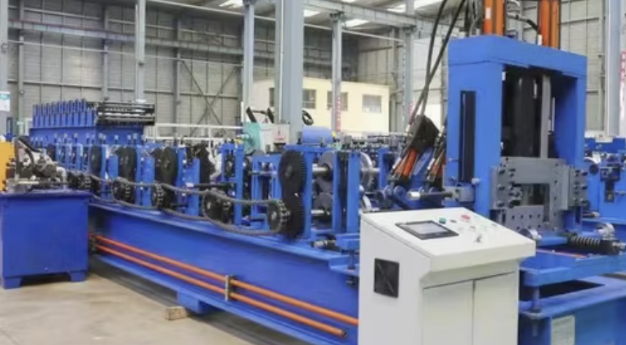
Posted on Saturday, November 16, 2024
Investing in a roll forming machine is a significant decision for any business in the construction or manufacturing industries. Tunisia's market offers unique opportunities and challenges, with specific requirements for profiles, power supply, and industry standards. Whether you are purchasing a new or used machine, this guide will provide the insights you need to make an informed decision.
New roll forming machines come equipped with the latest technology, ensuring durability, efficiency, and high-speed production. They are ideal for businesses looking for state-of-the-art solutions with minimal maintenance needs.
In Tunisia, common profiles include roofing sheets, decking, and wall panels. Each profile serves a different industry, so it's essential to select a machine tailored to your specific requirements.
Tunisia primarily uses a 230V/50Hz single-phase and a 400V/50Hz three-phase power supply. Ensure the machine you select is compatible with this standard to avoid additional costs for transformers or rewiring.
Manufacturers often provide customization options for new machines, allowing you to select specific profiles, materials, and production speeds. Customization ensures the machine meets your exact business needs, particularly in niche markets like agricultural or industrial construction.
Used roll forming machines are a cost-effective solution for businesses looking to expand their capabilities without a significant upfront investment. They also offer shorter lead times and often come with a proven performance record.
When purchasing a used machine, it is crucial to:
Consider upgrading used machines with modern components like servo motors, hydraulic cutting systems, or PLC software. These upgrades can significantly improve performance and extend the machine’s lifespan.
Used machines may require modifications to align with Tunisia’s power standards. Ensure these adjustments are factored into your purchase decision.
The demand for specific profiles in Tunisia varies across industries:
Steel, aluminum, and galvanized sheets are common materials in Tunisia due to their durability and resistance to the local climate. Machines should support these materials in varying gauges.
Importing roll forming machines to Tunisia requires careful planning:
Q: How do I determine the right profile for my roll forming machine in Tunisia?
A: Assess your industry needs and local market trends. For example, roofing panels are widely used in construction, while agricultural profiles suit rural development projects.
Q: What should I check when buying a used roll forming machine?
A: Focus on inspecting rollers, frame integrity, electrical systems, and compatibility with Tunisia's power supply. Request a test run to verify performance.
Q: How do I ensure the machine meets local power requirements?
A: Confirm with the manufacturer if the machine is compatible with Tunisia’s power standards (230V/50Hz or 400V/50Hz). Consider rewiring or installing transformers if necessary.
Q: Are there any specific import duties or regulations for roll forming machines in Tunisia?
A: Consult local customs authorities for the latest import tariffs and regulations. A local logistics provider can also guide you through the process.
Q: Can I get after-sales service in Tunisia for international brands?
A: Most reputable manufacturers offer remote support, training, and service agreements. Verify the availability of spare parts and local technical assistance before purchasing.
Q: What are the lead times for new vs. used machines?
A: New machines often have longer lead times due to customization and production. Used machines are typically available for faster deployment, provided they don’t need extensive refurbishment.
Buying a roll forming machine in Tunisia requires careful consideration of your business needs, industry demands, and local regulations. Whether you choose a new or used machine, this guide ensures you are well-prepared to make a smart investment that aligns with Tunisia’s market conditions.

Used Purlin Roll Forming Machines for Sale Worldwide
Posted on Sunday, January 25, 2026
Pre-Owned Roll Forming Machines for Purlin & Structural Steel Profiles

Used Roof Panel Roll Forming Machines for Sale Worldwide
Posted on Sunday, January 25, 2026
Pre-Owned Roll Forming Machines for Roofing Panel Production

Used Roll Forming Machines for Sale Worldwide
Posted on Tuesday, January 20, 2026
Pre-Owned Roll Forming Machines with Inspection, Verification & Global Support

Steel Coil Supply for Roll Forming Machines Worldwide
Posted on Tuesday, January 20, 2026
Reliable Steel Coil Supply for Roll Forming, Fabrication & Manufacturing Applications
Copyright 2026 © Machine Matcher.